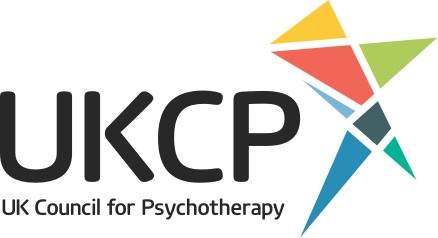Psychotherapy & Counselling in central Cheltenham, Gloucestershire, with Dr Lesley McGown
A highly experienced UKCP registered relational psychotherapist based in central Cheltenham, offering psychotherapy or counselling to adult individuals.
Psychotherapy and Counselling in central Cheltenham, Gloucestershire, with Dr Lesley McGown
Lesley McGown DPsych MSc(Psych)
UKCP registered Relational Integrative Psychotherapist
Welcome
'Getting better is, fundamentally, to change one's relationship to oneself'. (Adam Phillips)
I am a UKCP registered relational psychotherapist and clinical supervisor with many years’ experience gained in a number of settings, including the NHS. I work in central Cheltenham where I offer psychotherapy to adult individuals. Please note I do not offer therapy for couples.
If shorter-term counselling is more appropriate, this can be discussed at the time. I write about some of the differences between psychotherapy and counselling on the next page.
I also offer clinical supervision or consultation to qualified practitioners and trainees (see below).
Whilst I work with a wide range of difficulties, I have a particular expertise in the field of complex relational trauma and associated dissociative processes, offering an approach that incorporates an understanding of how trauma can be dissociatively stored in the body. I also have experience in working with people with dissociative disorders, including Dissociative Identity Disorder (DID).
‘Trauma has been and continues to be at the epicenter of human experience.’ (Peter Levine)
My approach to psychotherapy is to create a safe, non-judgmental and trusting atmosphere where you can freely express your thoughts and feelings and discuss whatever issues may be troubling you. Perhaps you will recognise some of these in the section below, where I consider the kind of problems with which psychotherapy can help.
If you would like to get in touch (also see below), the best way to contact me is by email. Please mention whether you are able to be flexible in terms of day/time of appointment, or if circumstances restrict your availability. It would also be helpful if you could add just a few words as to why you are seeking help.
For information on the initial consultation and more, please refer to the page entitled ‘Practicalities'.
What kind of problems can therapy help with?
‘Not everything that is faced can be changed, but nothing can be changed until it is faced.’ (James Baldwin)
People come to psychotherapy when they are struggling with emotional problems. Avenues for trying to understand themselves have stalled; they may have tried to talk to friends or family about what is wrong, but nothing seems to have changed. Alternatively, they have found it hard to express what is troubling them and feel alone and stuck.
Over the years, I have helped many people who have come to see me for all sorts of troubling reasons. These have included persistent low mood, lack of confidence or self-esteem, a sense of emptiness, chronic anxiety, medically unexplained somatic symptoms and a vulnerability to emotional overwhelm. Sometimes the opposite can pertain, that is, emotional numbness such that a person has difficulty experiencing, identifying, and expressing emotions.
Often people reach a stage in their lives when they begin to question who they really are. Through psychotherapy they seek help to better understand themselves, to enhance the relationship that they have with themselves - and thus with others - and to discover what is most meaningful in their lives. As Nietzsche reminds us: “That you feel something to be right may have its cause in your never having thought much about yourself and in your blindly having accepted what has been labelled right since your childhood.”
Others have sought help when the enduring emotional effects of trauma have become too much, profoundly impacting their well-being. The legacy of trauma is typically and understandably felt in a hyperfocus on staying safe. This leads to hypervigilance, mistrust and a difficulty in building and maintaining healthy relationships.
‘Being able to feel safe with other people is probably the single most important aspect of mental health; safe connections are fundamental to meaningful and satisfying lives.’ (Bessel A. van der Kolk)
Trauma, until we work through it, keeps us stuck in the past, limiting who we can be. By impelling us to suppress hurt and unwanted parts of the psyche, it can give rise to a disturbing sense of fragmentation. Until seen and acknowledged, it can also be a barrier to growth.
Many people think about trauma as a single major frightening event and whilst this may sometimes be the case, the experience of trauma is far more complex and far reaching. For instance, it isn’t always about what has happened. Often, it is about what hasn’t happened or what has been absent: typically - emotional safety, attunement and a sense of being welcomed into the world with the freedom to be fully oneself without fear. (I elaborate further on the nature of trauma on the next page.)
Early in life, adaptations (such as people pleasing, withdrawal or hypervigilance) can be developed as protective strategies to survive. However, what may have been helpful then, in later life can interfere with connection with oneself and others and thus with the capacity to form loving, secure and enduring relationships.
Unexplained Medical Symptoms & Somatic Problems: Trauma Therapy with the Body in Mind
‘Traumatized people chronically feel unsafe inside their bodies: The past is alive in the form of gnawing interior discomfort. Their bodies are constantly bombarded by visceral warning signs, and, in an attempt to control these processes, they often become expert at ignoring their gut feelings and in numbing awareness of what is played out inside. They learn to hide from their selves.' (Bessel A. van der Kolk)
We know that our bodily or somatic responses are very much part of our emotional response. Examples include tension headaches, blushing with embarrassment, or experiencing a ‘knot’ in the abdomen when feeling nervous or as a response to a threatening situation. Likewise, a physical sensation of nausea may be an aspect of anxiety.
In relation to trauma, when difficult or overwhelming experiences have been too much to manage at the time, the body may hold an accumulation of ‘locked-in’ stress which manifests in the way of somatic symptoms.
Indeed, as referenced above, Professor Bessel van der Kolk, one of the world’s leading experts on traumatic stress, notes that somatic symptoms for which no clear physical basis can be found, are ubiquitous in traumatised individuals. They include chronic back and neck pain, fibromyalgia, migraines, digestive problems, spastic colon/irritable bowel syndrome, chronic fatigue, obesity, seizures, autoimmune disorders, some forms of asthma and an array of medically unexplained symptoms.
Thus, when medically unexplained symptoms are present, an important aspect of trauma therapy is its exploration of the link between physical sensations and emotions. This focus, embedded within the overall process of trauma therapy, can be helpful in the alleviation or resolution of symptoms.
The Process of Psychotherapy
Essentially, psychotherapy involves a gradual process of being increasingly honest with oneself; exploring the unconscious or subconscious aspects of thinking and feeling; and developing an increased capacity for being close to other people in self-promoting rather than often self-destructive ways. It is about helping each person to appreciate their own complexities and to work towards finding lost or hidden aspects of themselves. Whilst the process takes time, patience, and courage, every step forward—no matter how small—is part of building a more grounded, resilient sense of self.
In sum, psychotherapy offers the opportunity to free oneself to become who one is and who one is capable of being.
‘Feeling real is more than existing; it is finding a way to exist as oneself... and to have a self into which to retreat for relaxation.' (Donald Winnicott)
'There is a voice that doesn't use words. Listen.' (Rumi)
Further information
Deciding to enter psychotherapy is a significant step and it is really important to choose a professional that is right for you. Whilst in some ways the internet has made it easier to find a therapist, many people search websites without necessarily understanding the differences, for example, between psychotherapy and counselling. To help with this, please follow the link below to Psychotherapy and Counselling. Here you will also find more information about the nature of trauma and how I work with this within the context of a psychotherapeutic healing relationship.
For practical information about my terms, including fees and frequency of sessions, please follow the link below entitled ‘Practical Matters’.
On the following pages you will find information about:
Getting in touch
Initial enquiries are best made by email. Please mention whether you are able to be flexible in terms of an appointment time, or if circumstances restrict your availability. It would also be helpful if you could add just a few words as to why you are seeking help.
Please note that I am unable to respond to emails at the weekend.
Supervision or Clinical Consultation
If you are a therapist-in-training or a qualified practitioner and you are looking for a clinical supervisor in central Cheltenham, please contact me and I would be very happy to discuss possibilities. I am registered with the United Kingdom Council for Psychotherapy both as a psychotherapist and clinical supervisor and I am also a Primary Supervisor with the Metanoia Institute. For more information please go to Supervision/Clinical Consultation.
Location
My Practice is based within short walking distance of the main shopping centre in Cheltenham and within easy reach of Stroud, Cirencester, Tewkesbury and Gloucester. Bristol is about a 50 minute drive. Car parking is available close by.
Contact me by email
Painting by Simon Pooley.

